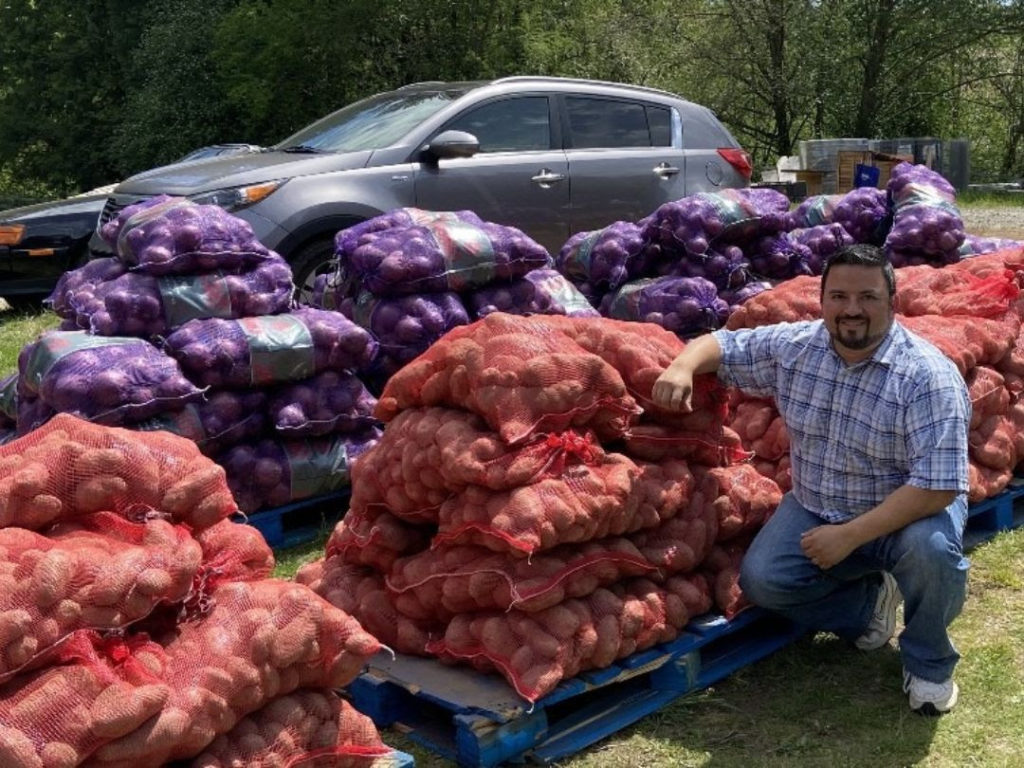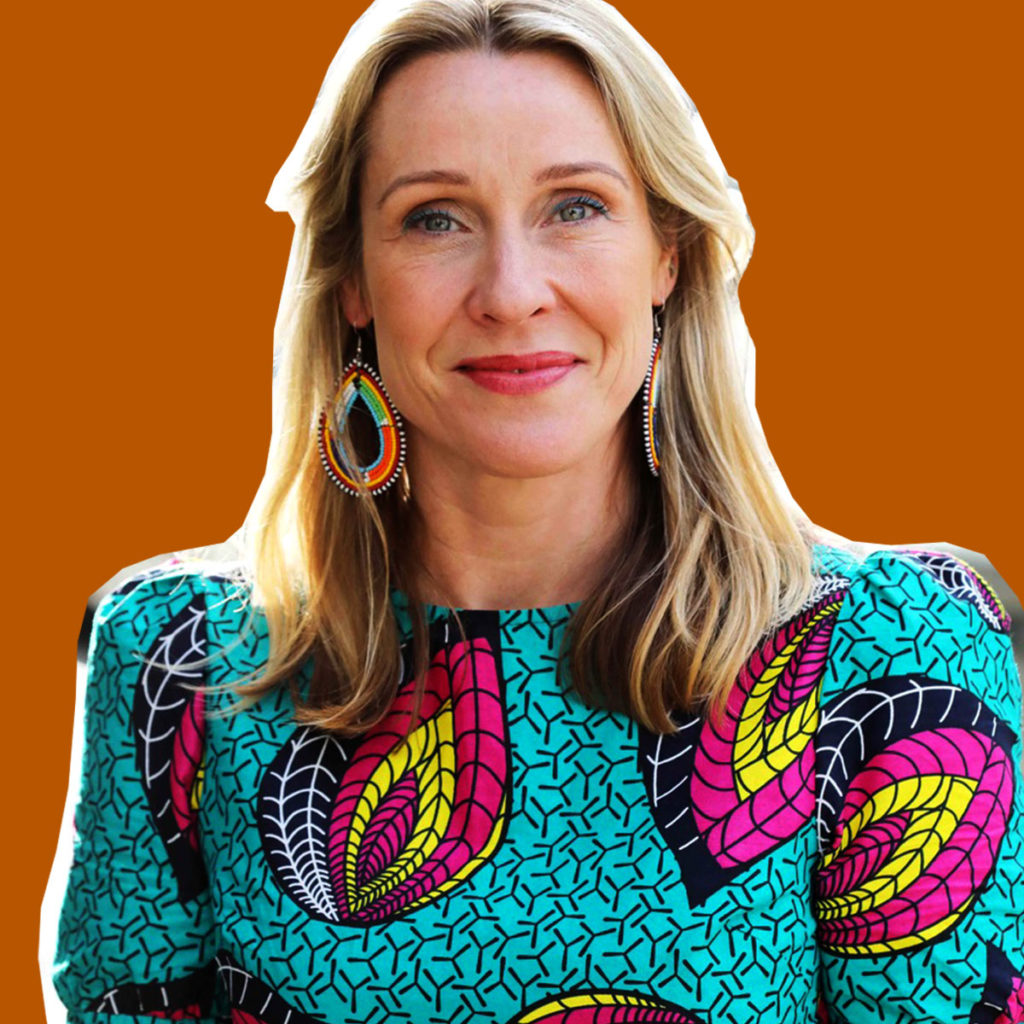
Enough Food Waste
“Wasted Food…!” read the Facebook plea. Nurse George Ahearn wrote a post about unsold produce on farms in eastern Washington in April when the pandemic broke out. Within a week, Ahearn had linked up with community members with vehicles and food system know-how to put this unsold food to good use. During a pilot food rescue operation, he and his partners moved more than 60 tons of produce to food banks in the western part of Washington, where economic downturns drive hunger.
After this first haul, Ahearn thought that was a good juncture at which to stop. “I said, surely we flooded a region. But, I soon realized that it was consumed in 72 hours.” Given the ongoing community need, he says, “It’s impossible to stop now.”
When COVID hit last year, farms experienced huge losses, with some farmers destroying perfectly good crops. Today, people facing economic hardship are still going hungry. In response, across the country, individuals, nonprofits, businesses, and government agencies are teaming up to simplify the supply chain between farms and food banks.

Image courtesy EWFR Facebook Page
But people like Ahearn quickly learned that getting excess crops to hungry people was a logistical challenge. Farms in Washington were ready to unload tons of food at a time, yet it needed to be cleaned and packaged. Luckily, local residents, businesses, and members of the public sector lent a hand. Ahearn and his crew went on to form a volunteer-run nonprofit, EastWest Food Rescue (EWFR), which has delivered more than 3,000,000 pounds of produce since April. While it started out as a Washington-based movement, EWFR has since expanded to serve a total of 19 states, with a focus on the Northwest.
A Volunteer-Driven Movement
The people driving this effort come from diverse backgrounds, ranging from nonprofit professionals to passionate farmers to college students.
Raised in a farming community in Othello, Washington, Ahearn, who now manages the network of farmers the non-profit works with, developed a strong foundation for his current role with EWFR from his early years. Growing up, he used to help a friend’s family pick watermelon, cantaloupe, tomatoes, and peppers; run their fruit farm stand; and drive their delivery truck. “Doing that type of work has certainly given me a lot of respect for the work that is done growing our food.”
Co-founder Nancy Balin is a former public-service lawyer who runs the Family Jewels Foundation in honor of her late son. Balin responded to Ahearn’s Facebook post because she had a pickup truck and multiple horse trailers to offer, which were used in the first EWFR convoy. Certified in nonprofit management, she now handles EWFR’s operations.
The third co-founder, Zsofia Pasztor, previously started the nonprofit Farmer Frog Farms, which offers community education programs centered on sustainable farming and resource conservation. Several members of EWFR’s current core team also work at Farmer Frog.
Ahearn says college-aged kids have been a big part of their volunteer force. As the main loaders and unloaders of all the produce, they are the “backbone… without them, we have no operation.” As the organization has grown, EWFR has started to explore partnerships with other similarly-minded groups, such as the Farm Link Project, a group of university students home from school who wanted to set up a similar farm-to-food bank operation.
The nonprofit has now delivered food to more than 560 food banks and other food-distribution programs Washington, Oregon, California, Arizona, Utah, Idaho, Montana, Wyoming, New Mexico, Nevada, Ohio, Oklahoma, Louisiana, New York, Minnesota, Texas, Florida, North Carolina, and North Dakota. This all adds up to the equivalent of more than 18,000,000 meals.
The founders continue to be moved by the faces and tears of people who receive the fresh food. Ahearn speaks of a married couple who both lost their jobs and found their three-month emergency fund wasn’t sufficient. “The food we brought to her food bank allowed her to pay her mortgage and utilities. How can you not have your heart full when you get results like that?”
Local businesses were also inspired to get involved with this grassroots food rescue operation; local companies that sell or rent vehicles are now EWFR partners. And, much of the food is moved by drivers who volunteer their refrigerated trucks.
It takes all, including public agencies. Nearby cities and counties have donated dump trucks, and EWFR has received government grants. Several mayors, a council member, and a police department are listed among its partners. The nonprofit is also teaming up with the National Tribal Council and all seven tribes in Washington.

EWFR Founder and Director of Farmer Relations, George Ahearn (image courtesy EWFR Facebook Page)
Adapting To Make It Work
EWFR pays farmers for produce when they can, putting up as much as they can. “I think some of the farmers are being generous with what they’ve been charging us. Everything from free to 10 cents a pound,” Ahearn says.
EWFR sometimes also receives food from packing houses and larger food banks “that maybe have excess inventory and need to empty their floor space for other things coming in,” he says, causing the nonprofit to constantly adapt.
Some people in the community have donated their entire stimulus checks to the nonprofit, while one gentleman sends in a $5 bill each week in the mail, Ahearn says. “Just as important.”
“What keeps me up at night is the knowledge that the demand for produce is going to go up,” Ahearn says, along with prices. He says this is due to the pandemic and the related trend that farmers are now planting less, particularly certain crops.
The East West Food Rescue team, though, has no plans of stopping. “There was food insecurity before COVID-19, and we know, [for some, the ramifications of this will be for years],” Ahearn says. “We are here to be a regional and national solution for the foreseeable future.”




